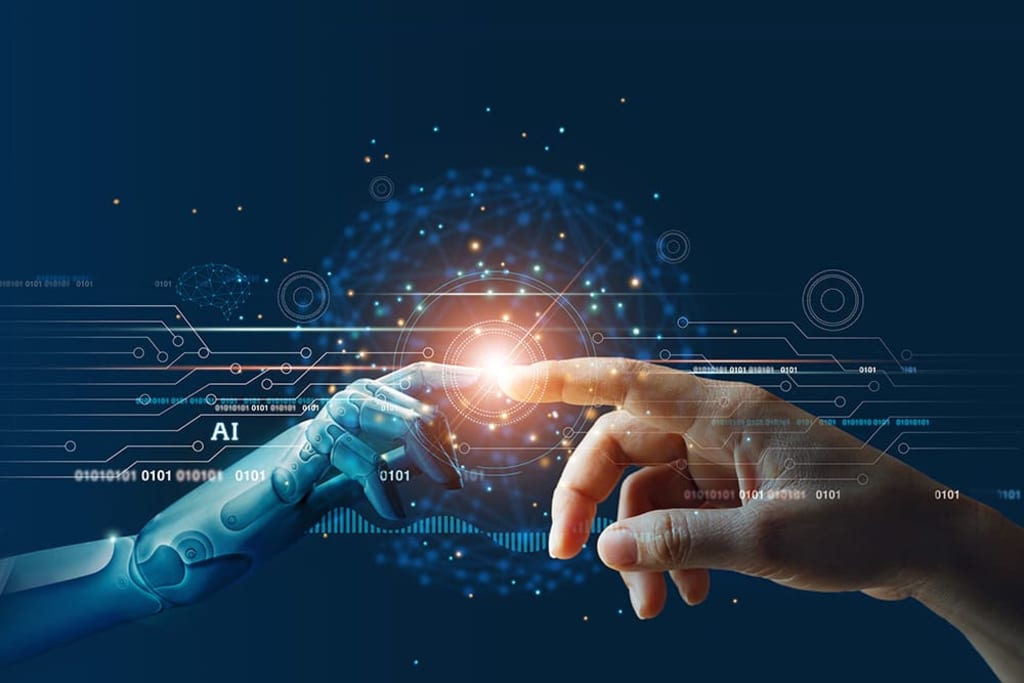The Future of Artificial Intelligence: Revolutionizing Industries and Transforming Lives
The Current State of Artificial Intelligence

The future of artificial intelligence (AI) is a topic that has been discussed and debated for years. As technology continues to advance at an unprecedented pace, the possibilities of what AI can achieve are becoming increasingly apparent. From self-driving cars to personalized healthcare, AI has the potential to transform industries and improve our daily lives in countless ways.
One of the most exciting aspects of AI is its ability to learn and adapt. Machine learning algorithms enable AI systems to analyze vast amounts of data and identify patterns that humans might miss. This makes AI particularly useful in fields such as healthcare, where it can be used to develop personalized treatment plans based on an individual's unique genetic makeup and medical history. In the coming years, we can expect to see AI playing an increasingly important role in healthcare, as well as in other industries such as finance, transportation, and manufacturing.
Despite the many benefits of AI, there are also concerns about its impact on society. Some worry that AI will lead to widespread job loss, while others fear that it could be used to create autonomous weapons or other dangerous technologies. As we continue to explore the possibilities of AI, it will be important to consider these ethical and social implications and work to ensure that AI is developed and used in a responsible and beneficial way.
The Current State of Artificial Intelligence
Overview of AI
Artificial Intelligence (AI) refers to the ability of machines to perform tasks that typically require human intelligence, such as learning, reasoning, and decision-making. AI has been around for decades, but recent advancements in computing power, big data, and machine learning algorithms have led to significant breakthroughs in the field.
Current Applications of AI
AI is being used in a wide variety of industries and applications, from healthcare and finance to transportation and entertainment. Some of the most common applications of AI include:
Natural language processing (NLP) for chatbots and virtual assistants
Computer vision for image and video analysis
Predictive analytics for forecasting and decision-making
Robotics and automation for manufacturing and logistics
Personalization and recommendation systems for e-commerce and marketing
Challenges and Limitations of AI
Despite its many benefits, AI still faces several challenges and limitations. Some of the most significant include:
Data bias and privacy concerns
Lack of transparency and interpretability
Limited ability to generalize beyond training data
Difficulty in handling complex and subjective tasks
Ethical and legal implications of autonomous decision-making
Overall, AI is a rapidly evolving field with enormous potential to transform industries and improve lives. However, it is important to approach the development and deployment of AI with caution and a thorough understanding of its capabilities and limitations.
The Impact of AI on Industries
Artificial Intelligence is transforming the way industries operate, and its impact can be seen across various sectors. Here are some of the ways AI is changing industries:
Healthcare
AI has the potential to revolutionize healthcare by improving patient care, reducing costs, and enhancing diagnostic accuracy. AI-powered tools can analyze large amounts of patient data to identify patterns and predict potential health issues. AI can also be used to develop personalized treatment plans, monitor patient progress, and even assist in surgeries.
Finance
AI is transforming the finance industry by automating tasks that were previously performed by humans. This includes fraud detection, risk management, and customer service. AI-powered chatbots are also being used to provide customers with personalized financial advice and support.
Manufacturing
AI is being used to optimize manufacturing processes by analyzing data from sensors and machines. This helps to identify areas where improvements can be made to increase efficiency and reduce waste. AI can also be used to predict equipment failures before they occur, reducing downtime and maintenance costs.
Transportation
AI is transforming the transportation industry by improving safety, reducing costs, and enhancing the overall customer experience. Self-driving cars are being developed that can navigate roads without human intervention, and AI-powered traffic management systems can optimize traffic flow and reduce congestion.
Retail
AI is being used to personalize the shopping experience for customers by analyzing their behavior and preferences. This includes product recommendations, targeted marketing, and personalized pricing. AI-powered chatbots are also being used to provide customers with 24/7 support and assistance.
Overall, AI is transforming industries and improving the way we live and work. As AI technology continues to advance, we can expect to see even more significant changes in the future.





Comments
There are no comments for this story
Be the first to respond and start the conversation.